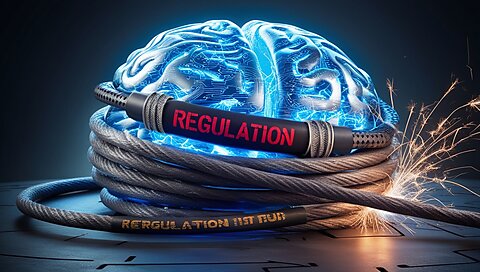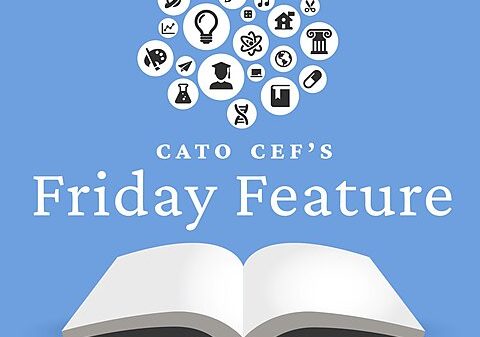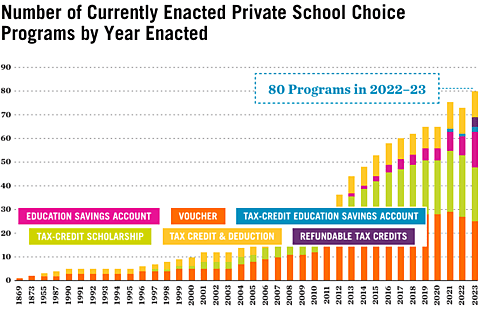Today, in Free Speech Coalition v. Paxton, the Supreme Court upheld as constitutional a Texas law mandating that websites impose age verification if those websites feature one-third or more content that is obscene for minors. In rejecting a First Amendment challenge to the law, the Supreme Court held that the law should neither be subjected to the most searching and skeptical form of judicial review (strict scrutiny) nor the most lenient and deferential (rational basis scrutiny). Rather, the Court applied the middle-ground “intermediate scrutiny.”
The Court’s opinion by Justice Clarence Thomas emphasized that many areas of the law distinguish based on age, including minimum age requirements to purchase guns, drive a car, or get married. And the Court reasoned that ID checks are a natural requirement for enforcing such distinctions. Prior Supreme Court cases have held that some forms of sexual content are obscene for children (meaning states can ban minors from viewing them without violating the First Amendment) but not obscene for adults. The Court concluded that if a state wants to enforce a law restricting minors’ access to obscene content, ID checks are the natural means of enforcement.
On this basis, the Court concluded that only intermediate scrutiny should apply to laws establishing ID checks for access to age-restricted obscene content. The Court reasoned that the intermediate scrutiny standard is sufficient to ensure that the government is not using such ID checks as a pretext for a law aimed at limiting the access of adults to protected speech.
After determining that intermediate scrutiny applied, the Court held that the law survived intermediate scrutiny. It held so because the law advances the state’s interest in shielding children from sexual content. The Court held, in addition, that requiring adults to verify their ages online before accessing such content did not impermissibly burden the speech rights of adults. Because the Court applied only intermediate (rather than strict) scrutiny, the Court did not require Texas to prove that it could achieve the state’s interest in protecting children in a way that imposed less of a burden on adults.
Unfortunately, this decision upends two decades of settled understanding about adults’ freedom to access legal content online without government-mandated ID checkpoints. In the 2004 case Ashcroft v. ACLU, the Supreme Court held that strict scrutiny applied to a very similar federal law, affirming a decision blocking that law. Implausibly, the Court today attempted to distinguish Ashcroft as not binding in this case. The Court reasoned that the law in Ashcroft required websites to show they had verified IDs as a defense to a prosecution, while the Texas law requires the state to show that a website lacked the required ID verification process at an earlier stage of an enforcement proceeding.
But although the procedures and burdens of proof in the two laws differed, the upshot of both laws was the same: mandatory ID checks for accessing online adult content. In effect, the Court has now overruled Ashcroft’s application of strict scrutiny to laws mandating such ID checkpoints.
In addition, the Court’s application of intermediate scrutiny significantly downplayed the unique risks and burdens of online ID checks for adult content. In his majority opinion, Justice Thomas wrote that “the decades-long history of some pornographic websites requiring age verification refutes any argument that the chill of verification is an insurmountable obstacle for users.” But the First Amendment test has never been whether a law presents an “insurmountable obstacle.” As Justice Elena Kagan noted in her dissent, the “First Amendment prevents making speech hard, as well as banning it outright.”
Indeed, online ID checks for adult content make it harder for adults to access that speech because the risk of leaks and blackmail is significantly higher for online ID checks than for in-person ID checks. Scans and photos can all too easily be accessed for nefarious purposes. As Justice Kagan wrote in dissent, an online ID scan is not “like having to flash ID to enter a club.” Rather, it is “turning over information about yourself and your viewing habits—respecting speech many find repulsive—to a website operator, and then to … who knows? The operator might sell the information; the operator might be hacked or subpoenaed.” Thus, as we at Cato wrote in our amicus brief, online ID checkpoints dissuade adults from accessing lawful speech and from exercising their constitutional rights. That chilling effect is far greater than any caused by ID checks for a marriage license or driver’s license.
Fortunately, the Court’s reasoning applies only to ID checks for content that is obscene for minors, which is the only category of speech where the Court has held that age makes a constitutional difference. The Court’s reasoning today does not justify ID checks for online speech that is legal and constitutionally protected for people of all ages, such as social media. While the Court’s decision today is disappointing, it remains to be seen whether it will lead to a weakening of First Amendment protections in any area outside the context of obscenity.




















